
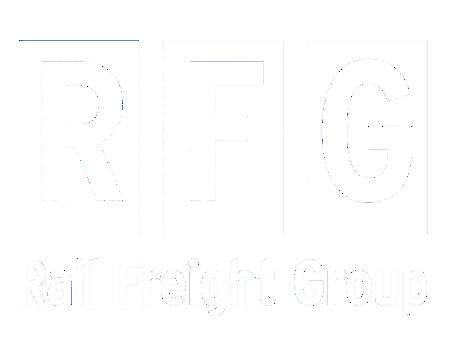
DELIVERING
REGIONAL
FOR OUR ECONOMY, ENVIRONMENT AND
WORKFORCE

Rail Freight Group (RFG) is the representative body for private sector rail freight in the UK.
Our members include rail freight operators, logistics companies, ports, equipment suppliers, property developers and support services, as well as retailers, construction companies and other customers. Our aim is to increase the volume of goods moved by rail.
The Delivered by Rail Freight Campaign is supported by the three largest freight operators with all members contributing to case studies.
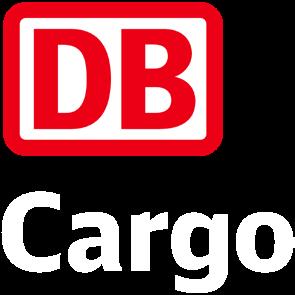
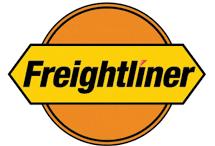
Last year, rail freight transported nearly net tonne kilometres of construction materials around the country.
DELIVERED BY RAIL FREIGHT | 3
5bn

DELIVERED BY RAIL FREIGHT
Rail freight delivers across Great Britain
Rail freight services help build homes and infrastructure, support carbon reduction and net zero targets, spread economic and employment benefits and deliver regional growth. We put a glass of wine on your table and even the fridge freezer to keep it cool.
We are ambitious to grow
Private sector rail freight operators are attracting customers away from roads and onto rail, helping to achieve the Government’s Rail Freight Growth Target of 75%. Our plans are wide ranging, from helping new businesses put their goods on rail, investing in new facilities, locomotives and wagons and transforming our operations with data-led technology.
It is possible to do more
By leveraging our commitments with small interventions from policy makers and funders, we can grow and deliver additional benefits for the economy, environment, regions, workforce and our customers.
Private sector rail freight operators are attracting customers away from roads and onto rail, helping to achieve the Government’s Rail Freight Growth Target of 75%
• Rail freight contributes around £2.5bn per year to the economy, and the private sector has invested over £3bn in the last 25 years.
• A freight train can carry the equivalent of up to 129 HGVs and emits 76% less CO2 per tonne than road freight.
• 90% of rail freight’s economic benefits are experienced outside London and the South East supporting regions around Great Britain.
• Nearly 6,500 people are directly employed by rail freight operators who provide high quality employment with access to training and development.
• Rail freight is an integral part of what makes of other industries work, supporting hundreds of thousands of jobs across the country and local and national supply chains.
5 | DELIVERED BY RAIL FREIGHT
Rail freight contributes £2.45bn to the British economy 4 | DELIVERED BY RAIL FREIGHT DELIVERED BY RAIL FREIGHT | 5
WE CAN DO MORE OF WHAT WE ALREADY DO WELL

WHAT WE OFFER WHAT WE
NEED
Delivering for the economy
• A fit for purpose rail network to increase productivity and support growth.
• We will continue to support the roll out of digital technology for locomotives, wagons and business systems.
• We will make better use of existing capacity including overnight trains, longer and heavier loads and path utilisation.
• Support and investment to deliver capacity enhancements including Ely Area Capacity Enhancement by 2030, West Coast Mainline five trains per hour by 2035, Transpennine Upgrade and other smaller schemes.
• Guaranteed and protected capacity to support rail freight growth.
Delivering for the environment
• A roadmap to decarbonisation.
• We will reduce our CO2 emissions and continue to develop the use of alternative fuels and invest in electric locos.
• We will reduce, reuse and recycle more waste at our depots and embed principles of the circular economy into our business plans.
• Support and finance of 60 miles of missing electrification to enable 2m train miles per year to be decarbonised.
• Support the development and introduction of low carbon fuels in rail through policy and investment.
Delivering for regions
• Reform of the planning system to support regional growth.
• We will continue to make investment in our new and expanded regional sites and properties for the benefit of communities and to create local jobs.
• Protection of key rail freight sites and industrial land, including implementation of the agent of change principle to protect freight customers and adjacent neighbours.
• In England, reintroduce Freight Facilities Grant (FFG) to help support the often high capital costs of connecting sites to the rail network. Retain the FFG in Scotland and Wales.
7 | DELIVERED BY RAIL FREIGHT
6 | DELIVERED BY RAIL FREIGHT DELIVERED BY RAIL FREIGHT | 7 Each train carries the equivalent of road transporters and supports the £202bn car industry. 23
Nearly
6,500
people are directly employed by rail freight operators
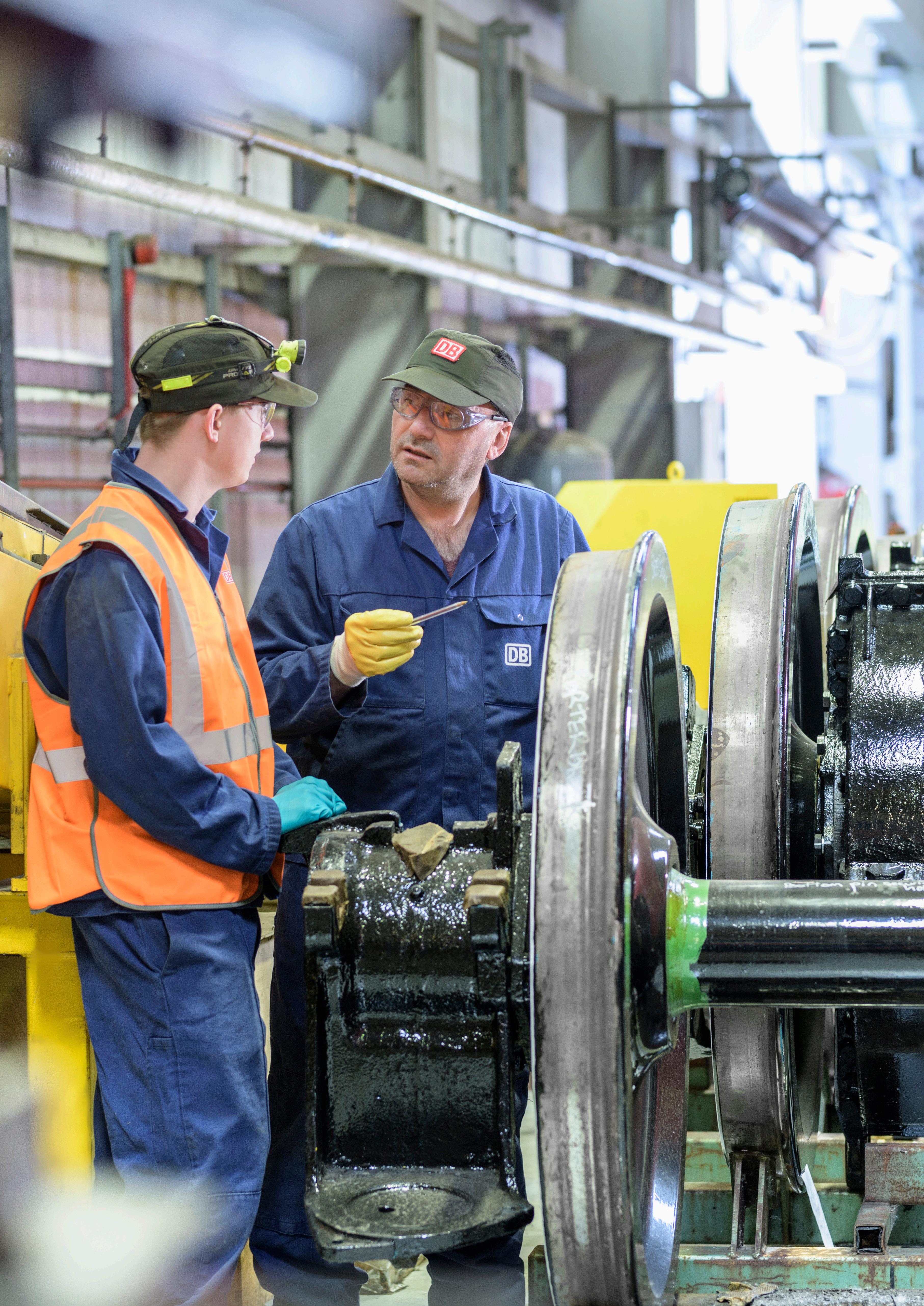
WHAT WE OFFER WHAT WE NEED
Delivering for our workforce
• A happy and healthy workforce that can rise to the challenge.
• We will continue to offer highquality apprenticeships, training and development.
• We will continue to offer a safe workplace, develop a vibrant and diverse workforce and invest to improve colleague wellbeing.
• Modernise and reform the apprenticeship levy with a recognition of the importance of other types of training. Support this training by increasing key courses available and appropriately fund provider costs.
Delivering for customers
• A level playing field to support customers to use rail more often.
• We will increase productivity through innovation, seeking new ways to do more with less and reducing costs.
• Working with sector experts, retain and modernise the Mode Shift Revenue Support (MSRS) scheme with its own budget - double that of today. The MSRS helps to bridge the cost gap on flows where rail is more expensive than the road alternative.
• A reduction of track charges of 20% in real terms by the 2029.
• A rail reform programme that delivers for freight.
9 | DELIVERED BY RAIL FREIGHT
8 | DELIVERED BY RAIL FREIGHT DELIVERED BY RAIL FREIGHT | 9
RAIL FREIGHT GROWTH SUPPORTS
WIDER POLICY GOALS
Rail freight is a critical enabler to other policy goals.
Building homes and infrastructure
Last year, rail freight transported nearly 5bn net tonne kilometres of construction materials around the country. This is almost double the volume it was transporting 20 years ago. Almost 40% of all construction aggregates moving into the South East are transported by rail freight, taking lorries off the road and reliably serving customers. Ambitions to build more homes and infrastructure will rely on rail freight services and appropriate freight facilities to support construction.
Attracting private investment
Rail freight businesses have heavily invested in terminals which have a ripple effect of jobs and prosperity. For example, it is estimated that the Northampton Strategic Rail Freight Interchange (SRFI) due to be opened in 2024 could create 7,000 local jobs.
Supporting homegrown power
There is an increasing focus on ensuring we have energy security in Great Britain. Rail freight supports the energy industry by transporting biomass to domestic power stations. Last year nearly 1bn net tonne kilometres of biomass were transported across the network.
Most freight trains currently run on diesel. Besides electrification, alternative low carbon traction could be provided by batteries for in-terminal moves, hydrogen for low speed operations and HVO as a drop in fuel.
Achieving net zero
The Freight Facilities Grant (FFG) helps with high capital costs of new or modernised rail terminals and facilities. It leverages private investment where there the development would attract freight off road and onto rail. The FFG is currently available in Scotland and Wales but has been stopped in England.
There are many environmental benefits of using rail freight over other transport modes. In the last ten years, rail freight services could have avoided 82m lorry journeys which are 76% more polluting and would have clogged up Britain’s strategic road network. We are always looking for ways to reduce our own carbon emissions. Operators have been increasing their use of Hydrotreated Vegetable Oil (HVO) on some routes and undertaking trials with a range of different fuel types and mixes.
Regional growth
Rail freight contributes £2.45bn to the British economy with 90% of these benefits felt outside London and the South East.It also attracts private investment in local areas. In areas that have high logistics density –including rail freight – there is a 1.4% increase in GDP of the local authority area.
Improving local transport
It is estimated that by 2025 the cost of road congestion to British businesses will be £18m; taking more freight off our roads and onto trains will help tackle this and improve local road transport for communities. In lowering congestion, people killed or seriously injured can also be reduced. There are around 250 fatalities involving HGVs each year.
Creating opportunities
Rail freight operators directly employ nearly 6,500 people and far more are employed across the infrastructure and supply chain that supports it. It is estimated that in the logistics sector - of which rail freight is a part - every 1,500 employees support another 1,000 jobs across the supply chain and local community. The National Skills Academy for Rail estimates that for every £1 spent on training in rail skills results in a £3 return on investment.

Operators are committed to providing ongoing training and development to our employees, creating high-quality jobs with opportunities to progress.
Delivering apprenticeships
Apprenticeships are a vital way to address potential skills shortages in the rail industry. The three largest rail freight operators currently have more than 100 active apprentices in a range of roles from engineering to IT.
Rail freight growth
Rail freight operators work closely with new customers to identify the benefits of using rail over road. Providing a reliable service is critical to meeting our customers’ needs. On average nearly 90% of our trains arrive within 15 minutes of the regulated target. Outperforming road in this way means we can shift more freight to rail. Customers are also cost-driven: affordable charges can also stimulate mode shift.
The Mode Shift Revenue Support (MSRS) scheme helps to bridge the cost gap on flows where rail is more expensive than the road alternative. The scheme allocates money where there are environmental benefits of transporting goods by rail instead of road.
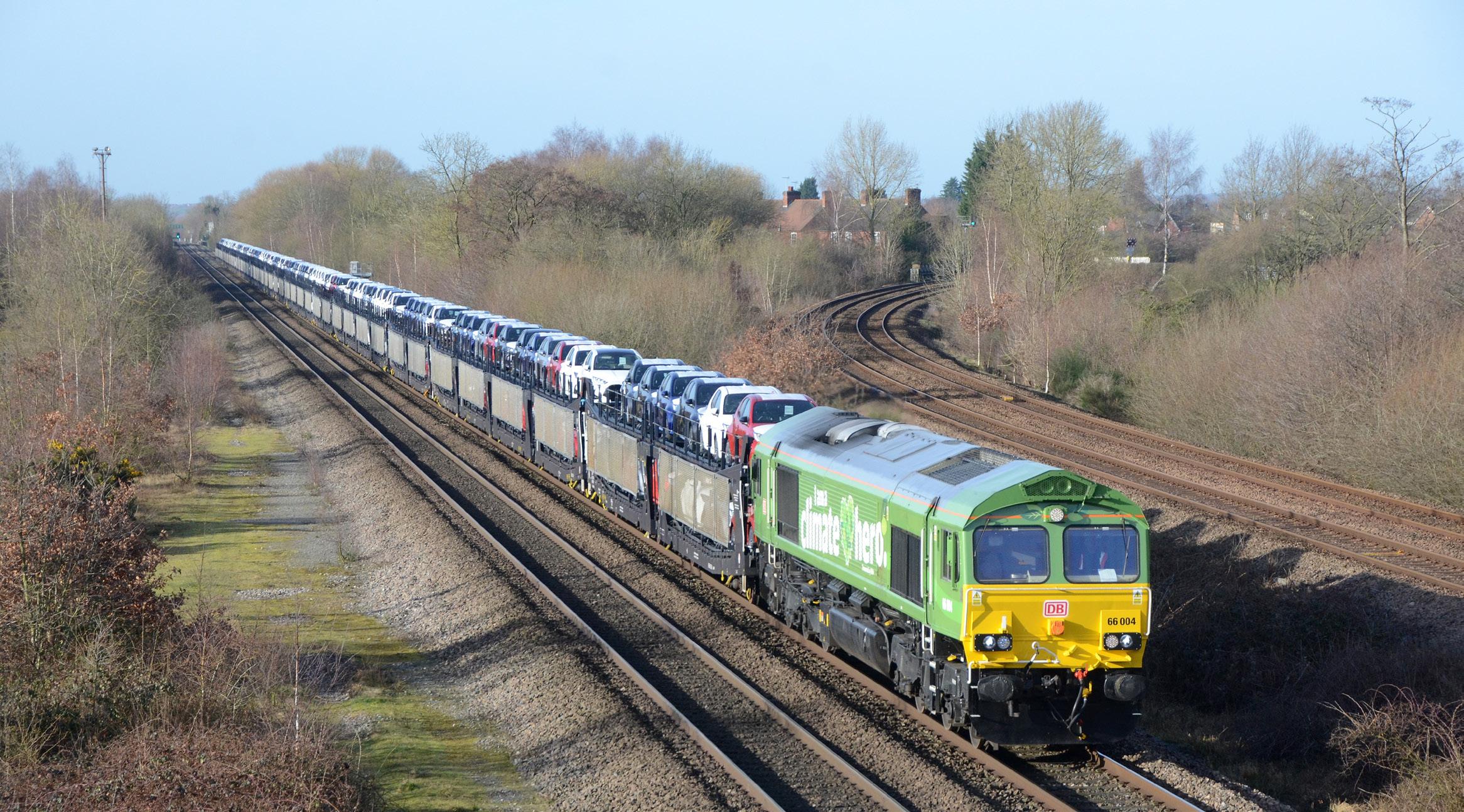
10 | DELIVERED BY RAIL FREIGHT
FROM VINEYARD TO
TABLE
Freightliner provides an end-to-end service, transporting imported wine from ports to bottling facilities in the North West. The glass of wine on your table is delivered by rail freight.
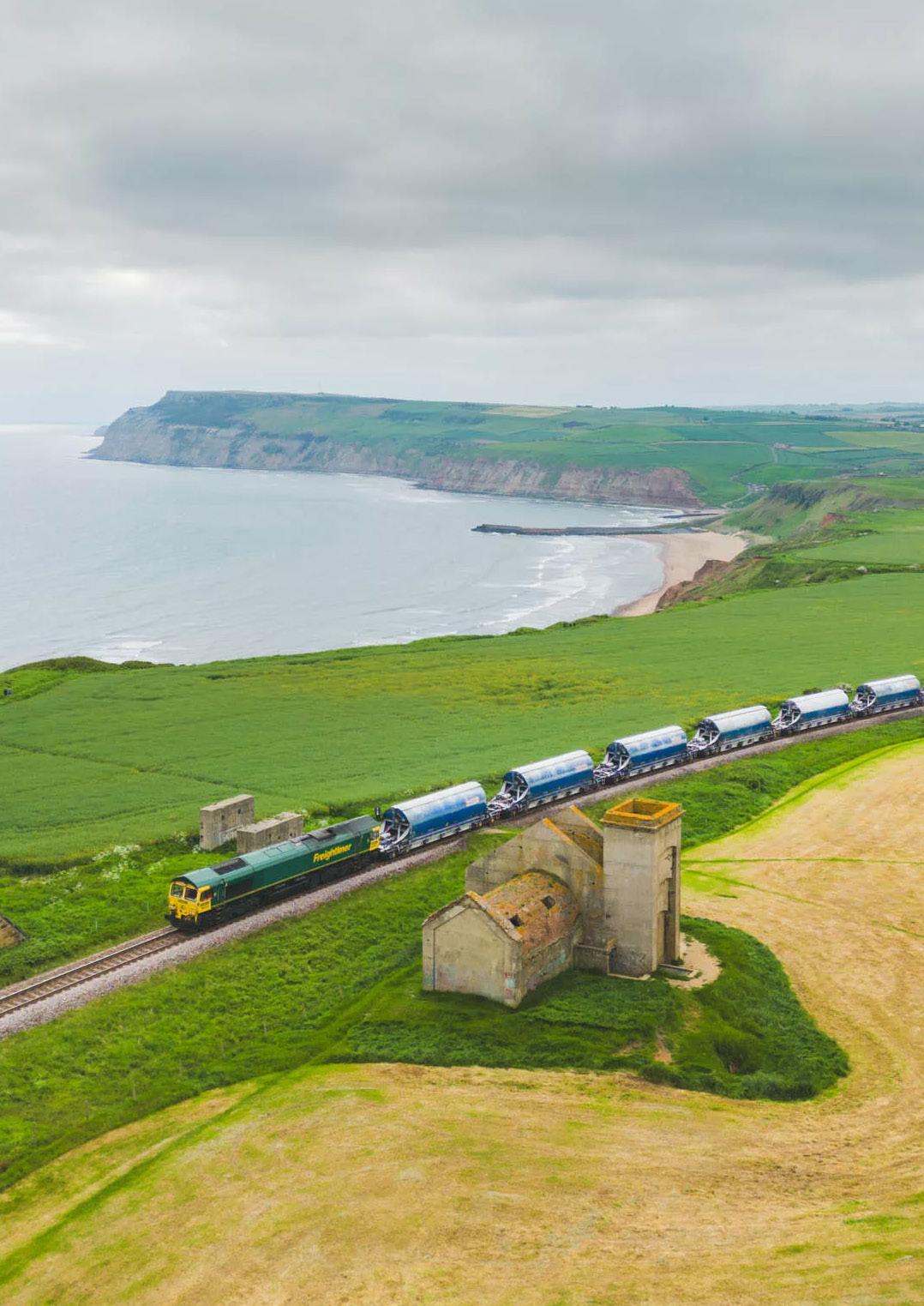
Port of Southampton
Wine is imported in shipping containers from countries such as Australia, New Zealand, Chile, Argentina and South Africa.
In 2022, rail freight helped avoid more than 6m HGV movements with all the associated environmental benefits.
Intermodal Rail Freight
The wine arrives in vats which are packed into shipping containers and transferred to rail.
A single freight train like the wine service can replace up to a mile of lorries on a stretch of motorway. The wine train eases congestion for other road users on the busy M3, M4, M40 and M6 motorways. This can also reduce road accidents and fatalities.
Liverpool Rail Freight Terminal
Vats are unloaded and make a short onward journey by road to a bottling facility in Ellesmere Port.
A single freight train, like the wine service, can be worth around £1.5m in benefits to the economy.
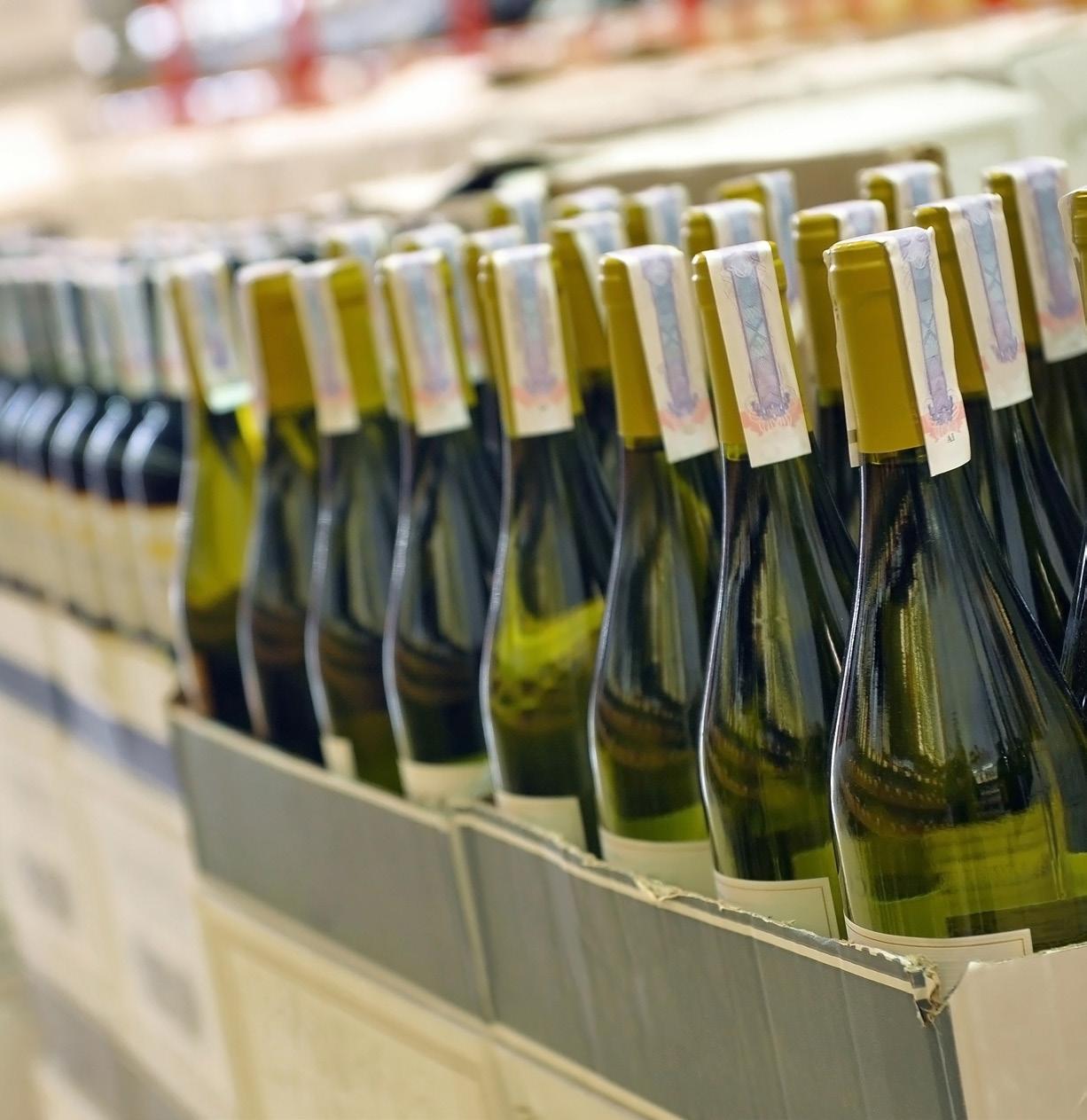
Port
The wine is drained into a tank ready for bottling. The leftover wine from the removal process is mixed with other products to produce fertiliser avoiding any unnecessary waste.
Around 4bn bottles per year are manufactured at the Ellesmere Port site.
The wine train contributes to regional growth. 90% of the economic benefits of rail freight are experienced outside London and the South East in places like Liverpool and the North West, including job creation.
King’s Lynn
A single freight train, like the wine service, can be worth around £1.5m in benefits to the economy
Rail freight services – like the wine train –support thousands of jobs in other sectors. For every 1,500 jobs in logistics a further 1,000 jobs are supported in the supply chain.
13 | DELIVERED BY RAIL FREIGHT
12 | DELIVERED BY RAIL FREIGHT
Ellesmere
Silica sand used to make the bottles is transported by rail freight from King’s Lynn to Ellesmere Port.
DELIVERED BY RAIL FREIGHT | 13
DELIVERING ACROSS GREAT BRITAIN
Scotland
In 2022 Highland Spring opened a new dedicated freight facility at its plant in Perthshire. The facility was supported by the Freight Facilities Grant which leveraged private investment. Approximately 40% of the water bottled in Perthshire is now transported by train equivalent to 8,000 HGV movements and over 3,000 tonnes of CO2 per year.
Varamis run former passenger trains to carry freight overnight between cities in the UK. They run a service between Scotland and the Midlands Monday to Friday carrying express parcels and retail goods. These services are hauled by electric locomotives meaning they reduce carbon emissions and improve air quality.
North West
Cemex continues to invest in its Salford railhead including to add additional capacity. These services allow Cemex to deliver on its commitments to health and safety, and decarbonisation goals. These services remove 25,000 HGV movements a year.
North East
Tunnel segment manufacturer Strabag brought back into use a rail head next to its factory in Hartlepool. This allowed Freightliner to transport tunnel segments by rail to London for the HS2 project. The facility created more than 100 jobs for people in Hartlepool.
Yorkshire and The Humber
British Steel exports track to Belgium used by Infrabel to renew its network. DB Cargo fulfils the Scunthorpe to Calais leg of the journey, including going through the Channel Tunnel. The service secures jobs in both the rail and manufacturing sectors.
Wales
In 2022 Network Rail, Breedon and the Welsh Government revitalised the rail freight line at Llandudno Junction. The work has enabled new rail freight services to run between Llandudno Junction and Luton, transporting slate. This kind of capacity improvement allows freight to be moved off rail and creates high-quality local jobs.
Midlands
It is estimated the china clay services take 11,000 HGVs off Cornwall’s already busy roads
DIRFT is a leading road/rail intermodal logistics park where many household name retail brands are located. DIRFT redevelopment will expand capacity to 32 trains per day. This will allow more retail goods to travel by train reducing road congestion and carbon emissions.
DB Cargo has invested £2.6m in improving services at Toton. Services support the export of Toyota cars to France and Czechia. Each train carries the equivalent of 23 road transporters and supports the £202bn car industry.
East Anglia
As part of a pilot, GB Railfreight has expanded its mentoring scheme from Ipswich to Peterborough. By targeting areas of low economic mobility, “Back on Track” seeks to help rebalance the UK economy by showcasing the opportunities rail freight offers.
South East
GB Railfreight operate season services on behalf of Network Rail to ensure passenger trains can operate efficiently. In autumn removing leaves from the network and treating railheads with anti-ice fluid to prevent ice build-up in winter to ensure commuters and passengers get to their destinations on time.
In December 2023, Freightliner and Mendip Rail Limited, started a new timetable of around 250 train paths from Somerset quarries to destinations across the South East. This has delivered a more resilient and efficient service that supports growth.
South and South West
Freightliner have improved South Wales trade connectivity by starting new intermodal services from Southampton to Cardiff. The new services were possible due to the launch of a financial incentive scheme, by the port operators, DP World. The scheme has led to five new trains a week.
South West
Every year DB Cargo moves around 7,200 tonnes of China Clay from Fowey to Stoke. China clay supports the production of paper, rubber, paint and porcelain. It is estimated the china clay services take 11,000 HGVs off Cornwall’s already busy roads.
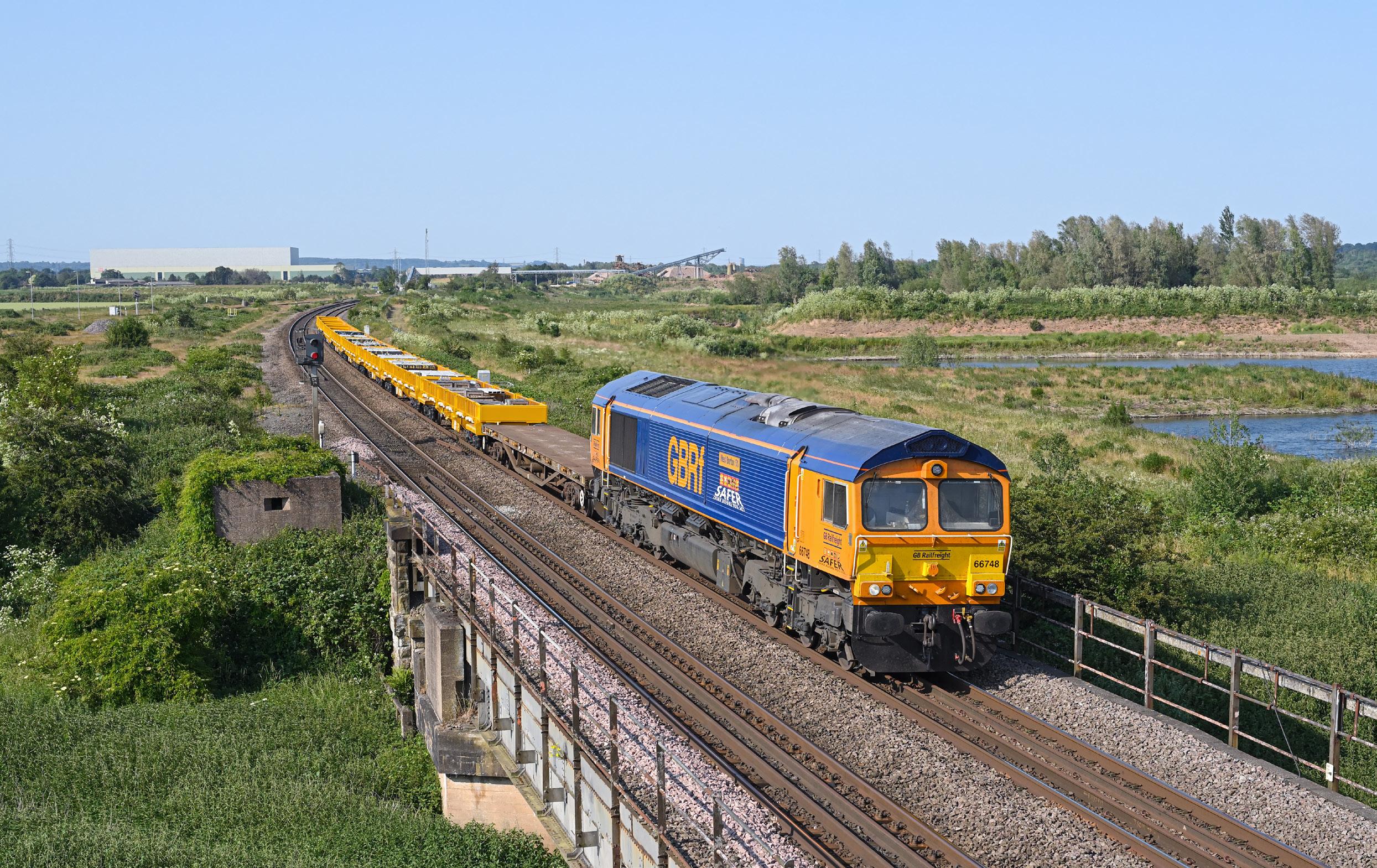
14 | DELIVERED BY RAIL FREIGHT
14 | DELIVERED BY RAIL FREIGHT
DELIVERED BY RAIL FREIGHT | 15
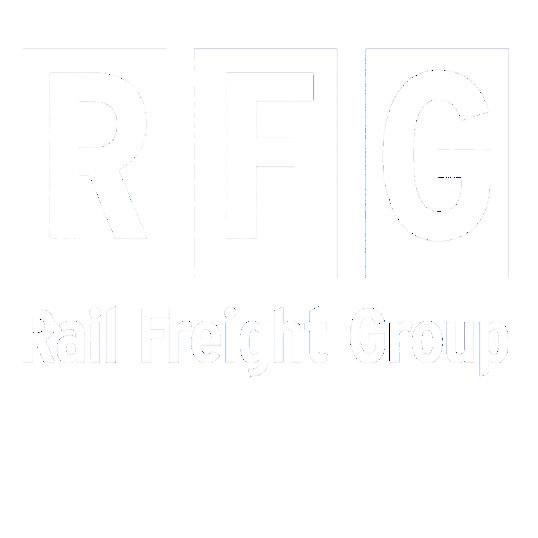
Please contact us to find out more contact@rfg.org.uk Rail Freight Group 7 Bury Place, London, WC1A 2LA rfg.org.uk railfreightUK rail-freight-group














